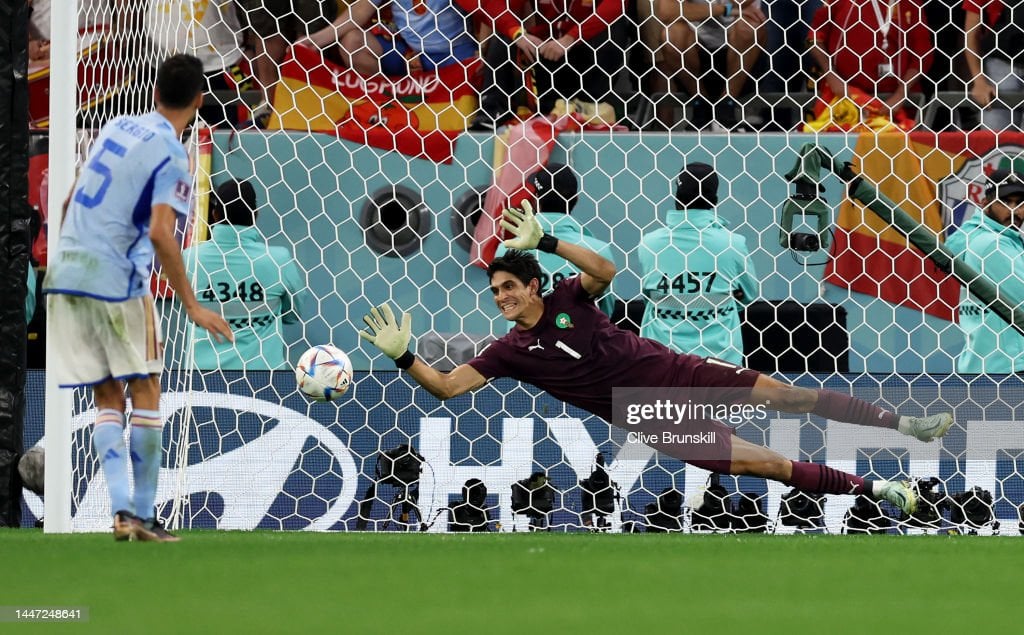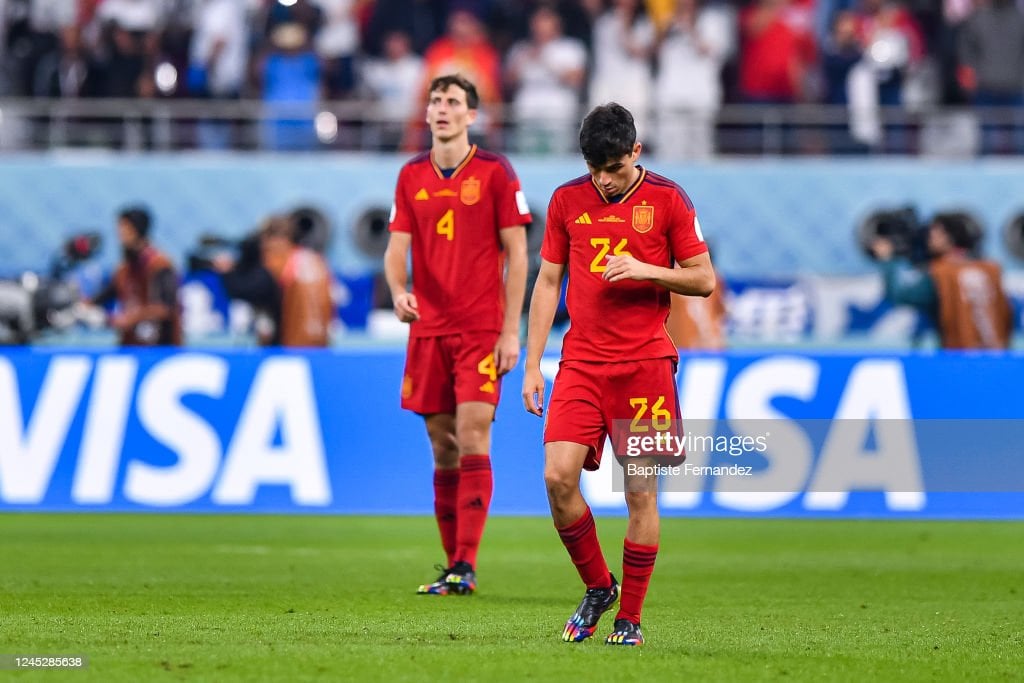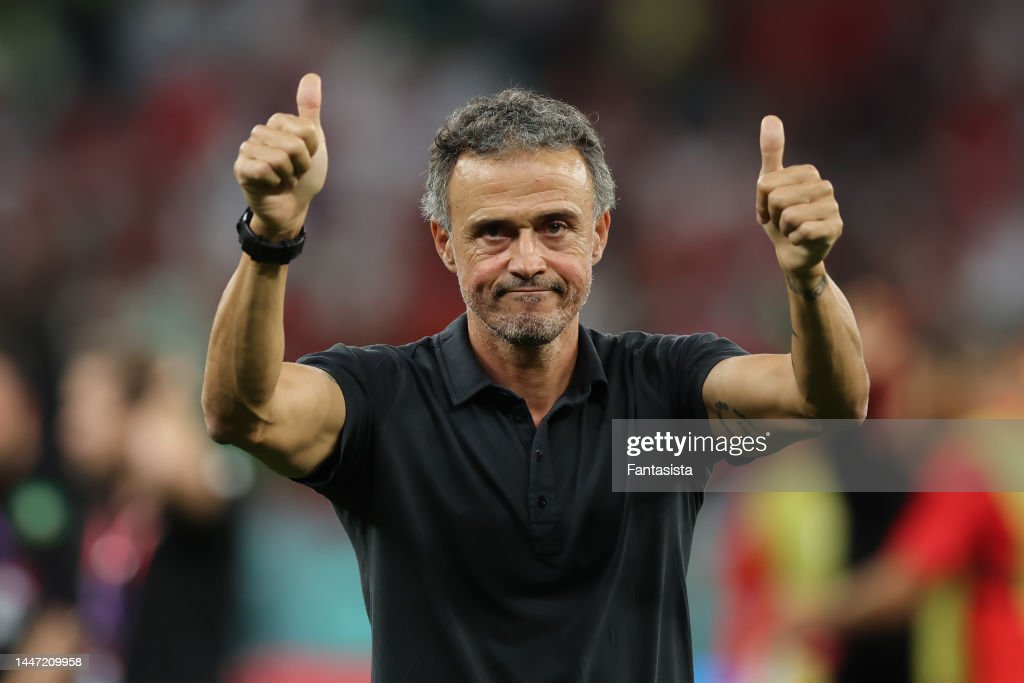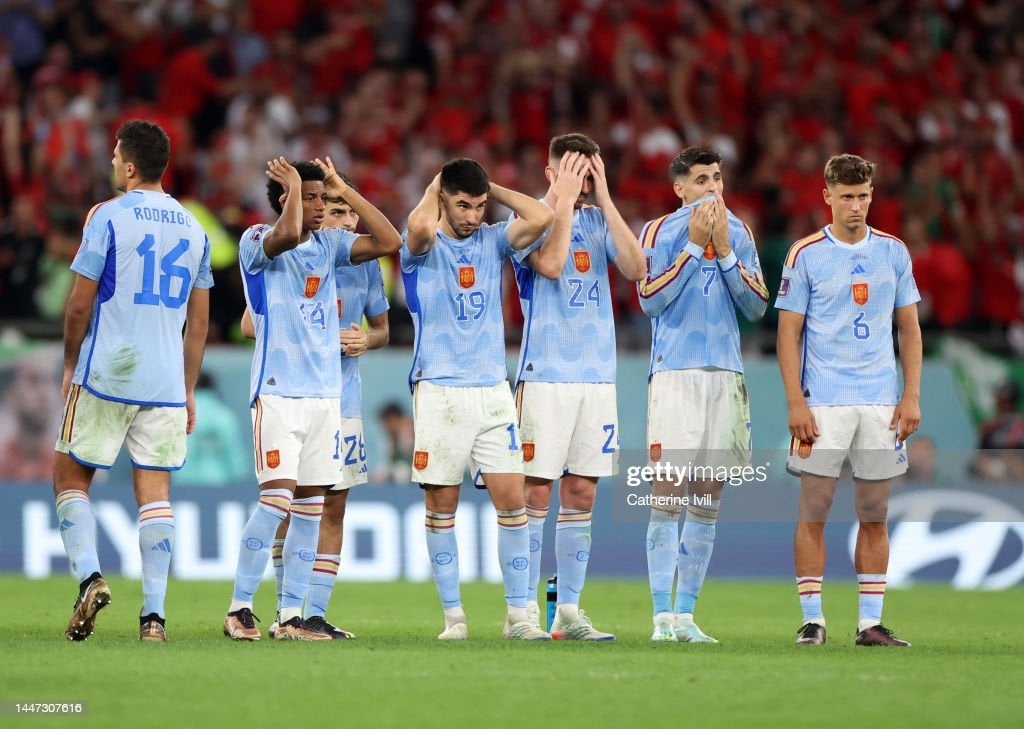Last summer, Luis Enrique made it known to his players that they had to improve. Spain had failed to reach the final of Euro 2020 after losing to Italy on penalties. The national team manager knew that those small details from the spot ultimately cost them from playing in their first showpiece final for almost a decade.
Enrique gathered his troops and told them they had to work on their penalties, for this hadn’t been the first time Spain had fallen short in a spot-kick finale. Only three years earlier in Russia, before Enrique was manager, Spain dramatically fell out of the World Cup as Russia triumphed from the spot in another losing denouement for Spain.
Two such exits from successive major tournaments led to Enrique asking his players to practice taking at least 1,000 penalties with their clubs. He wanted every Spain player to be comfortable when standing 12 yards from goal. Enrique didn’t believe that “luck” had anything to do with Italy and Russia getting the better of Spain. “It’s the moment of the highest pressure, you have to show skill and take the penalty,” he said.
And so to Tuesday evening at the Education City stadium in Doha. Another Spain knockout match went to extra-time and then to penalties. Any practice didn’t pay off. Morocco triumphed, the underdog roaring, with Spain missing their first three penalties allowing the Atlas Lions to book a quarter-final berth alongside Portugal and become only the fourth African team to reach the last-eight of a World Cup.
Bono, the Morocco goalkeeper who plays for Sevilla in La Liga, was instrumental in his team’s victory but naturally the focus was on Spain once again failing to win a penalty shootout. “I chose the takers, I thought they were the best on the pitch,” Enrique said afterwards.

“[If I could change something] I would take Bono away and put another goalkeeper there. [Penalties] are not a lottery for me. You have to control yourself. What we did was dominate the game but we lacked the goal, that is the reality, that is the truth.”
Spain may have become the first nation to lose four World Cup penalty shootouts and just the second side to not score in one, but it will be the performance over 120 minutes of this round-of-16 match that will most perturb supporters of the national team.
Spain had 77 per cent of possession and made 1,019 passes — 926 were accurate — compared to Morocco's 304. They ended the match, though, with just six shots and one shot on target as, time and time again, their patient passing approach was brilliantly rebuffed by a well-organised Morocco.
Too many passes and not enough inroads being made has been a common accusation as Spain’s World Cup campaign started to falter. The thrilling thrashing of Costa Rica by seven goals was a lively starter but the tense 1-1 draw with Germany was a tighter affair. Then the shock 2-1 defeat to Japan, which would have cost Spain a place in the last-16 had Germany not triumphed over Costa Rica, was hugely underwhelming.

Some may even say they saw Spain’s exit coming. This has been the World Cup of upsets and Spain have been in reverse since their first game. They came unstuck when up against packed defences and unable to find the spaces. For all of the excitement surrounding Pedri and Gavi, too much of their play was sideways and in the middle third.
Spain’s “great fiasco” ended with “a destructive batch of penalties”, said El Mundo’s match report. “For Spain, possession was not enough” cried the headline from El Pais.
This sinking feeling will linger for Spain. Since winning their last trophy (Euro 2012) they have exited in the last-16 of three tournaments (World Cup 2018, 2022 and Euro 2016), failed to make it out of the group stages once (World Cup 2014) and reached last summer’s European Championship semi final. There is a sense that Spain have lost that winning edge and are in a state of transition.
Uncertainty about Enrique's future
Enrique swatted aside suggestions that he brought an inexperienced squad to Qatar and was unwavering in his belief of the players. But there is now uncertainty over whether the 52-year-old continues as head coach.

The former Barcelona manager is out of contract this summer after being appointed in 2018. He stepped away for a short period in 2019 because his late daughter had been diagnosed with bone cancer but was back guiding Spain in 2020.
“Next week we will speak and discuss about my future, now it's not the right moment — I’m the one responsible,” he said in the aftermath of Tuesday’s defeat. “If it was up to me, I would stay all my life, but that is not the case. I have to think calmly what is the best for me and for the national team. All situations will have an influence.”
Enrique will have suitors back in the club game where his possession-based approach will be welcomed. It is a way of playing that he has stuck with throughout his time with the national team, despite continually coming up short at the major tournaments. Throughout the World Cup he defended his approach, saying ‘football is a show and not for boring people’.
However, defeat to Japan and exiting the competition on penalties to Morocco begs the legitimate question: Did he get his approach wrong?










































